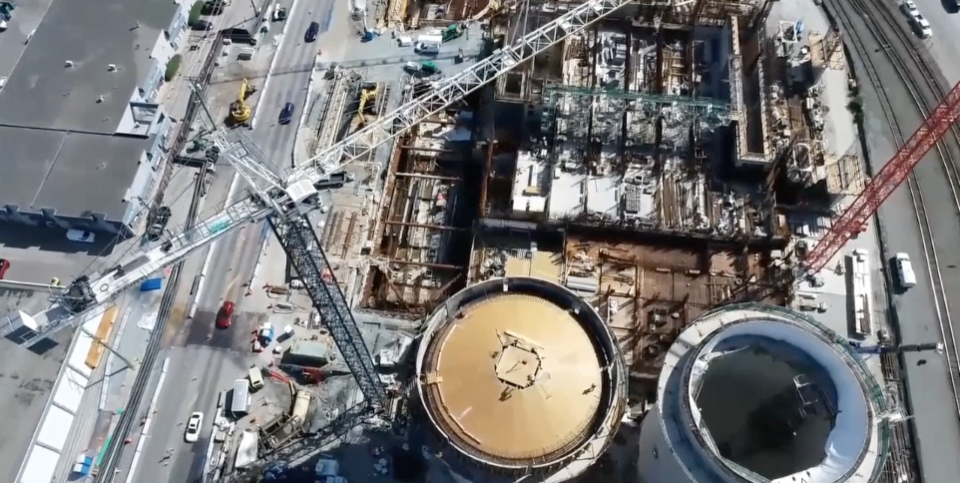Metro Vancouver is suing Acciona, the now-terminated contractor behind the stalled North Shore Wastewater Treatment Plant, alleging the company is responsible for $500 million in cost overruns.
The Greater Vancouver Sewerage and Drainage District, which is the wastewater arm of Metro Vancouver, signed the design build contract with Acciona and its partners in April 2017. After the project fell behind schedule and went over budget, Metro terminated the agreement with Acciona in January, 2022.
In March, Acciona filed a $250 million civil claim against Metro Vancouver for wrongful termination, unpaid costs related to the project, as well as lost profits and lost opportunity as a result of “diminished reputation” caused by Metro ending the contract.
The Acciona lawsuit asserts Metro Vancouver chose a poor site for the new treatment plant and that the plans would be impossible to deliver without introducing major changes, which Metro refused to allow. There were unexpected soil conditions on the site that resulted in increased costs and delays, which weren’t known until after the company signed the project agreement, Acciona alleged.
Metro Vancouver has now filed its response to the civil claim stating the allegations in Acciona’s lawsuit “bear no resemblance to the realities of Acciona’s incompetent, wrongful and negligent performance.” At the same time, Metro’s lawyers filed a counterclaim against Acciona.
None of the allegations, from Metro or Acciona, have been proven in court.
Acciona did not immediately respond to a North Shore News request for comment on Metro’s suit.
Although Metro and Acciona agreed in in 2019 to make changes to the contract, Acciona came back in June 2021 with a new scheduling update seeking another 26 months for the construction period, which Metro Vancouver’s counterclaim says is “non-excusable.”
“In addition to failing to meet the [project agreement] requirements, Acciona made hundreds of changes to dates and durations of completed work so the project schedule updates did not accurately reflect the actual completion dates and made hundreds of other changes contrary to proper and good scheduling practice,” the claim states.
Acciona failed to properly interpret, understand and implement the project specifications, the claim adds. By using a series of consultants who failed to co-ordinate with one another, there were “innumerable design errors,” Metro asserts.
“Acciona and the DCS contractor breached their respective duties of good faith and honest performance and acted in a high-handed and reprehensible manner,” the counterclaim states, including “wrongfully and intentionally producing project schedules … knowing them to be untrue and inaccurate or reckless as to their truth or accuracy.”
The claim also alleges Acciona released untreated groundwater directly into the District of North Vancouver’s sewer system, which was a permit breach.
Metro Vancouver is asking the courts to award the regional government general and punitive damages, including the cost of hiring replacement contractors, increased costs for equipment and materials, extra consulting fees and administrative, security, and insurance costs.
“The breaches of the project agreement by Acciona … have caused or will cause damages, costs and expenses to the GVS&DD in an amount exceeding $500 million,” Metro alleges.
The original agreement included a clause indemnifying Metro Vancouver against all direct losses related to a breach of the contract, the countersuit states.



